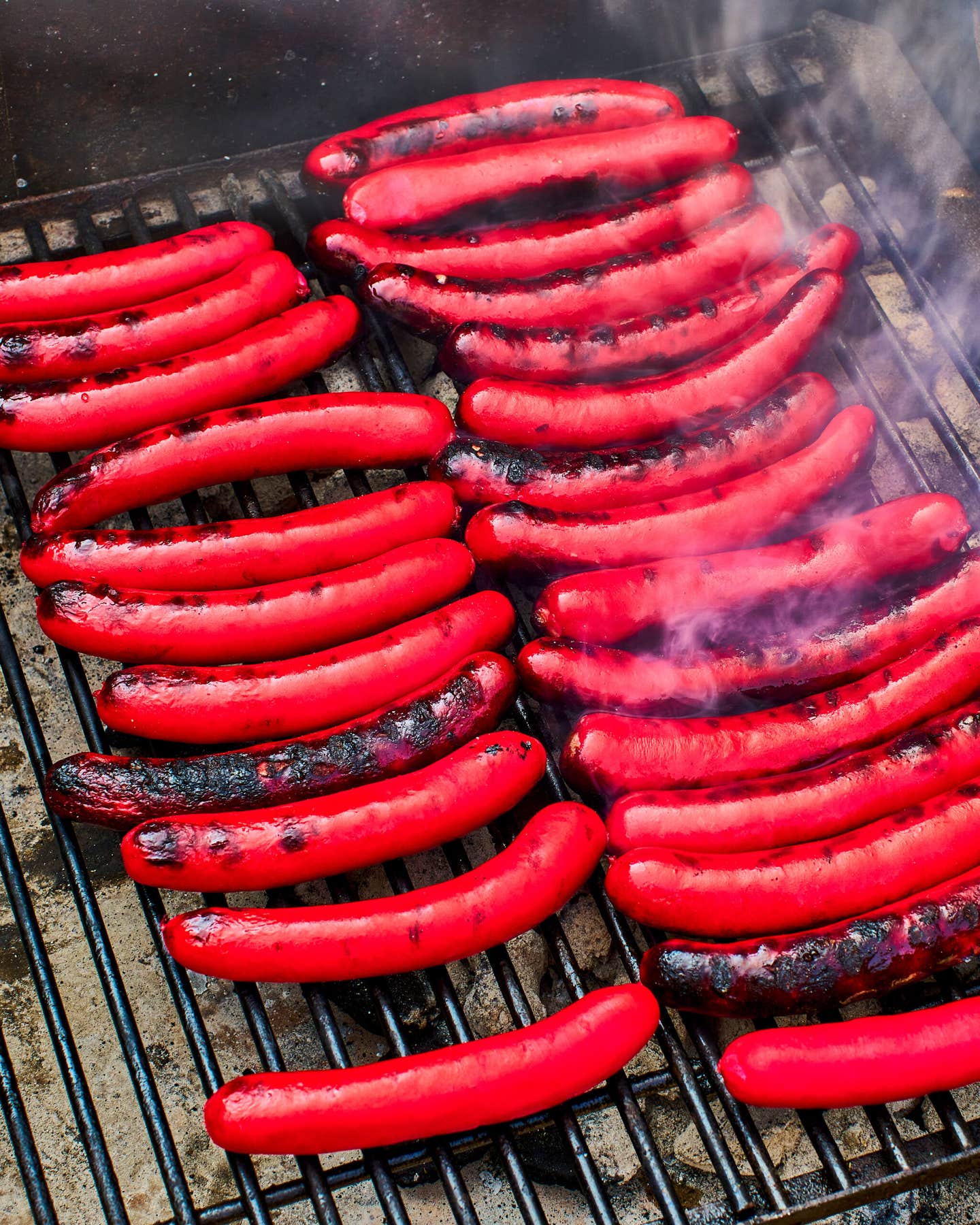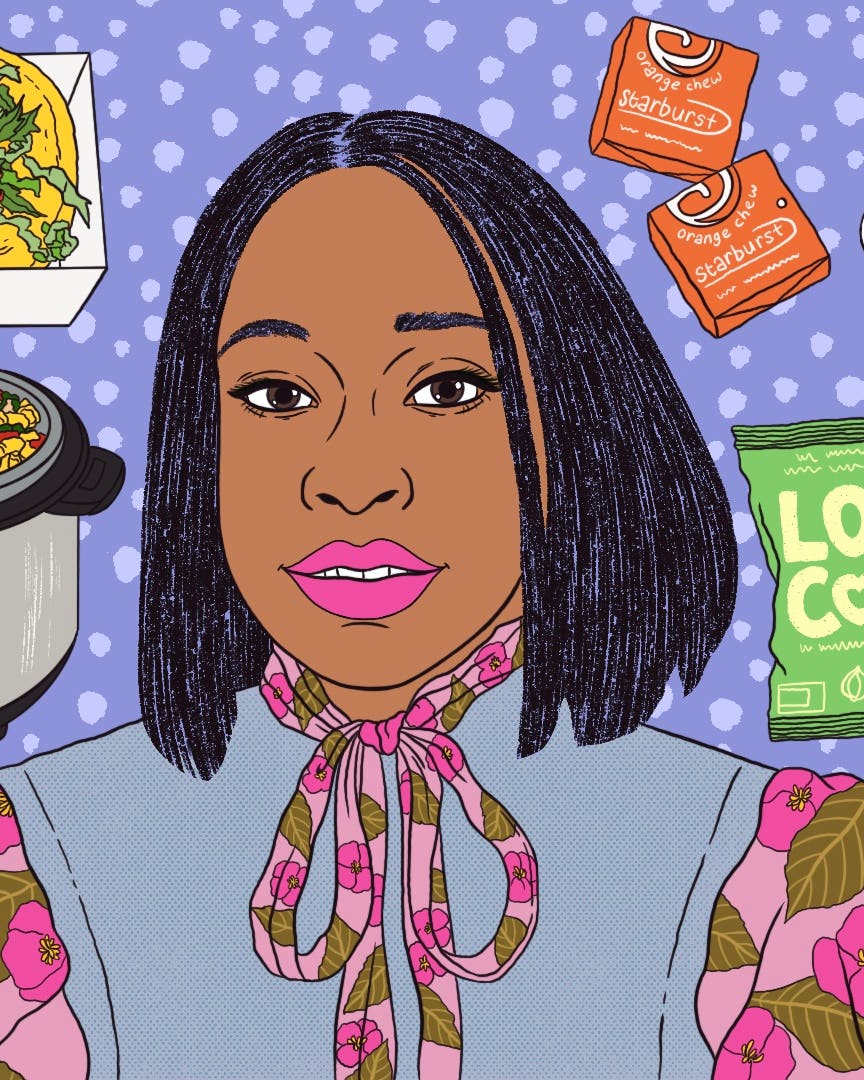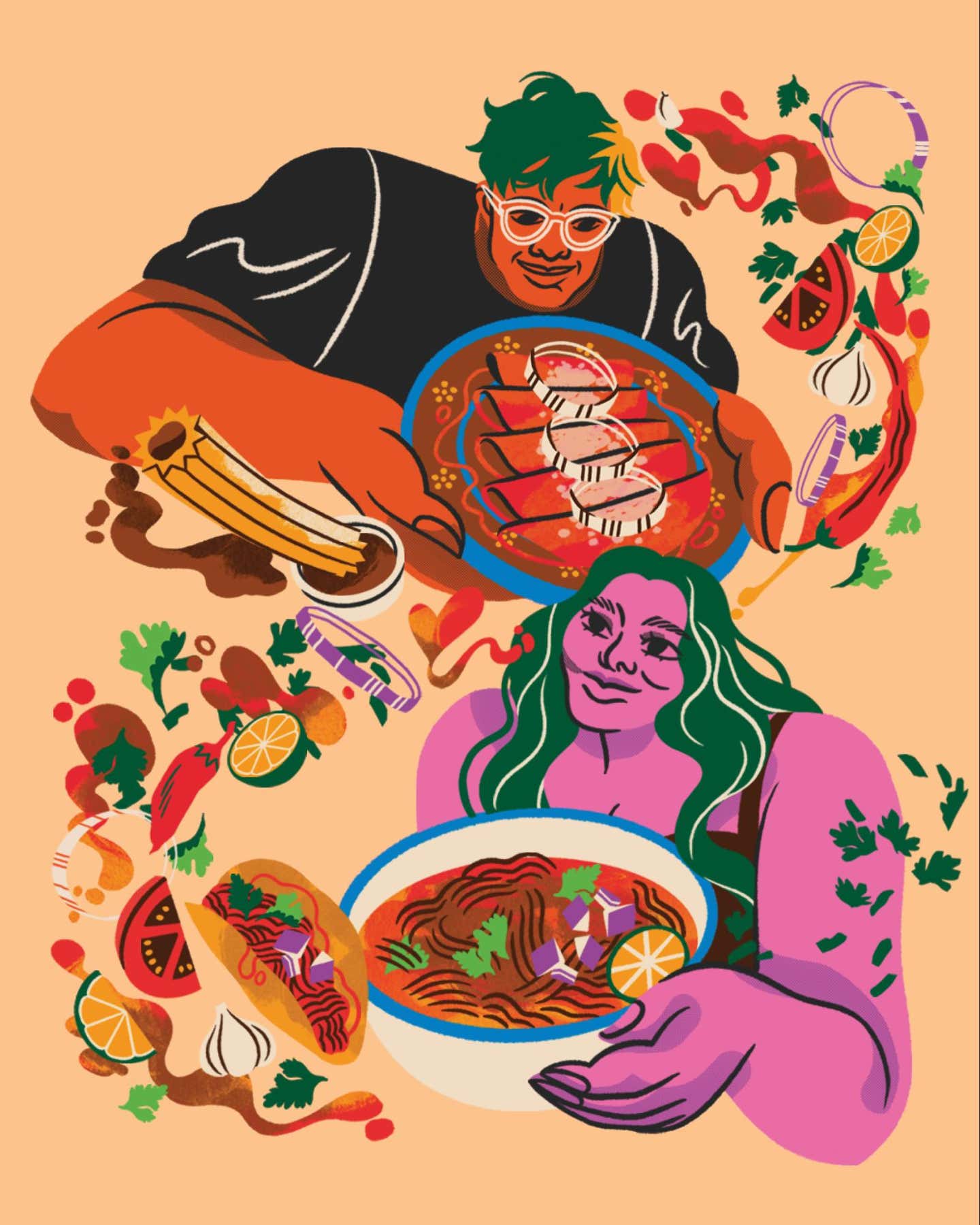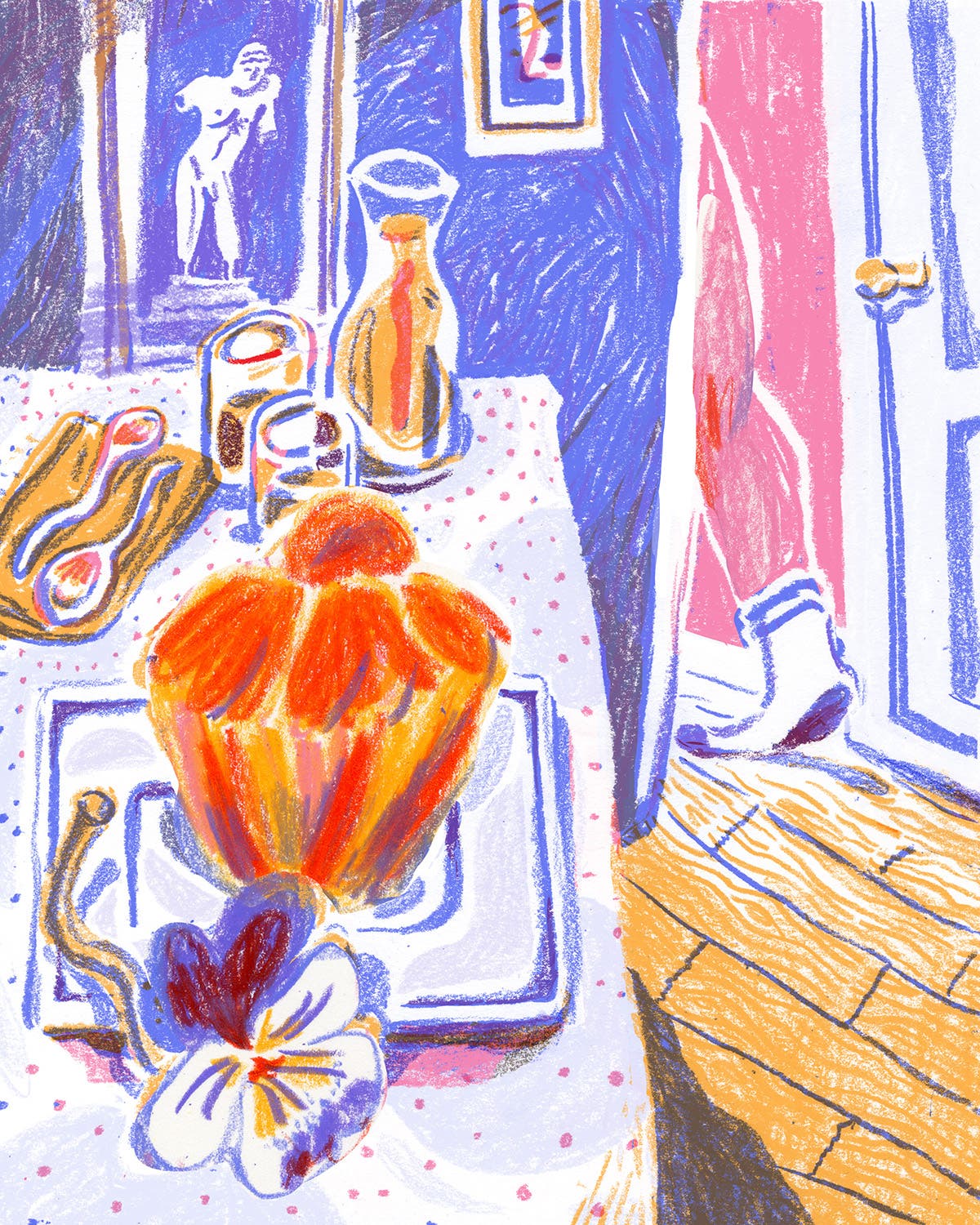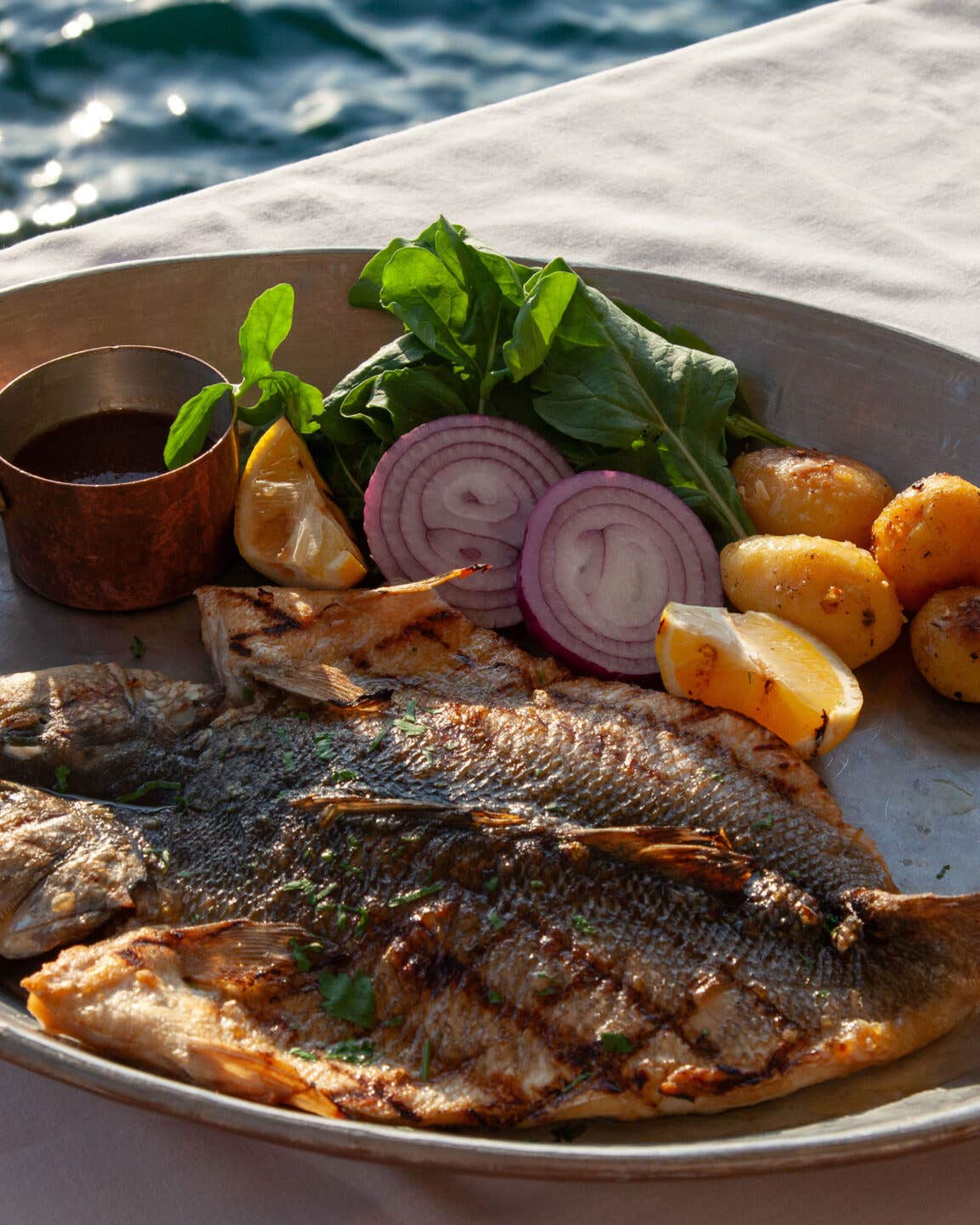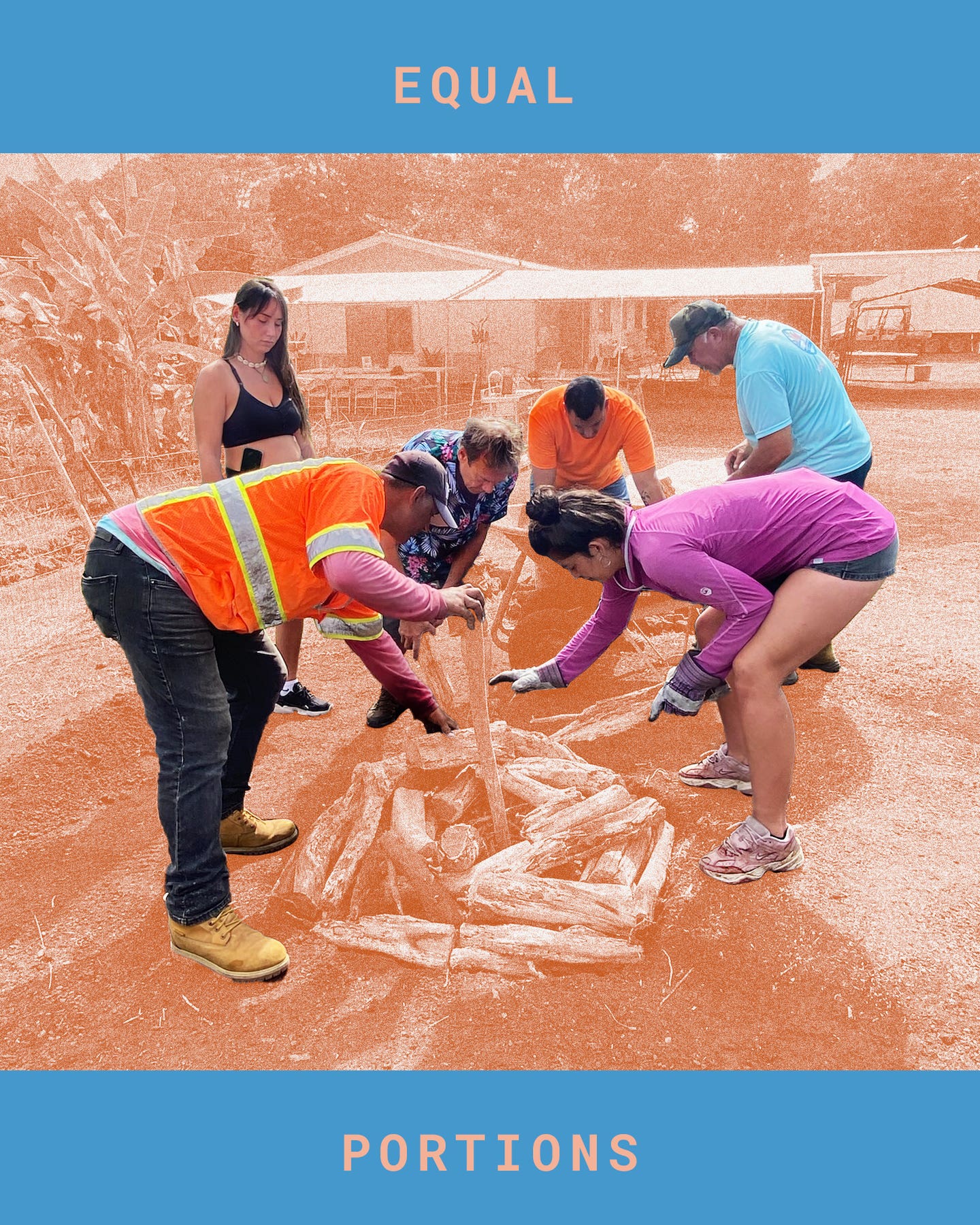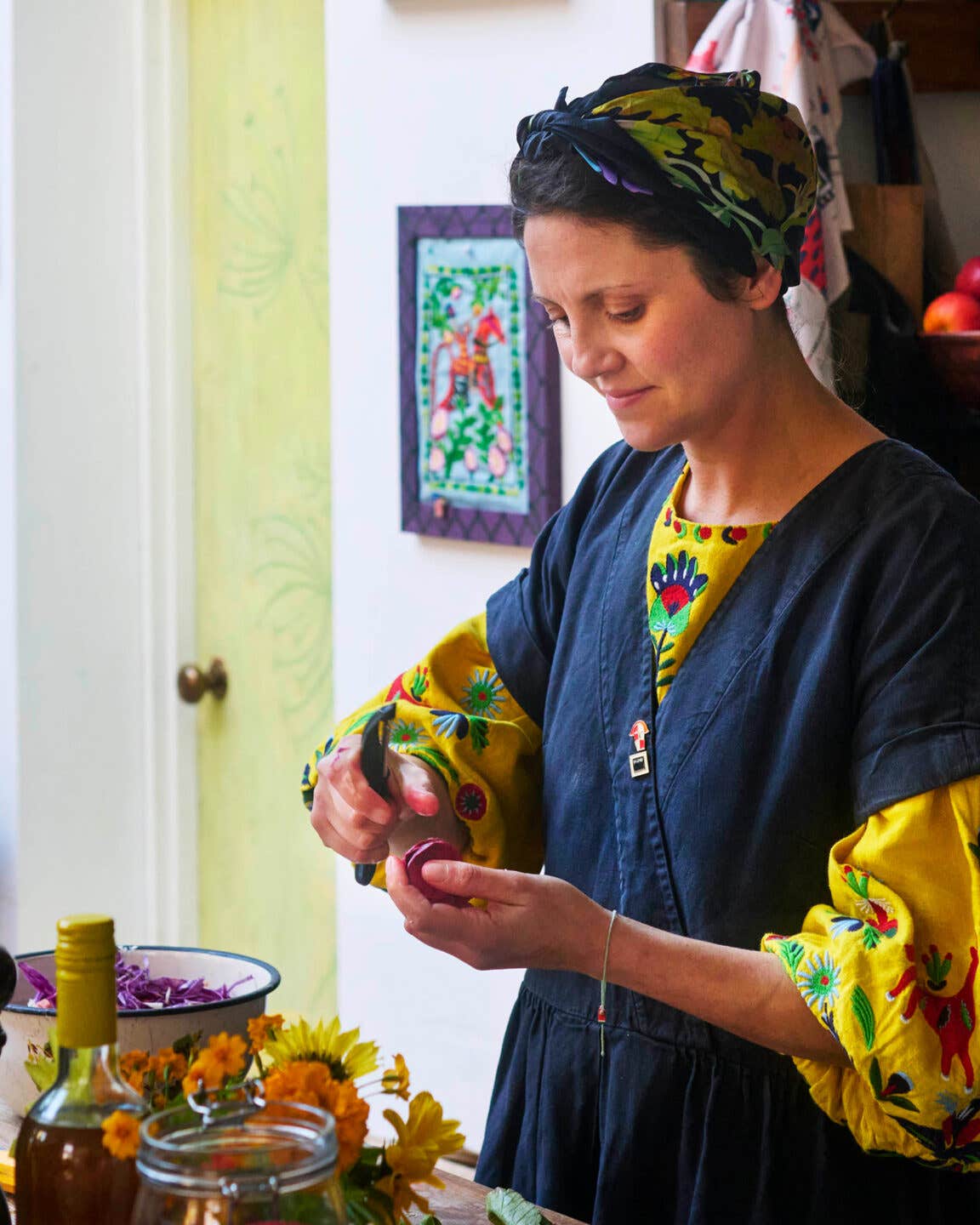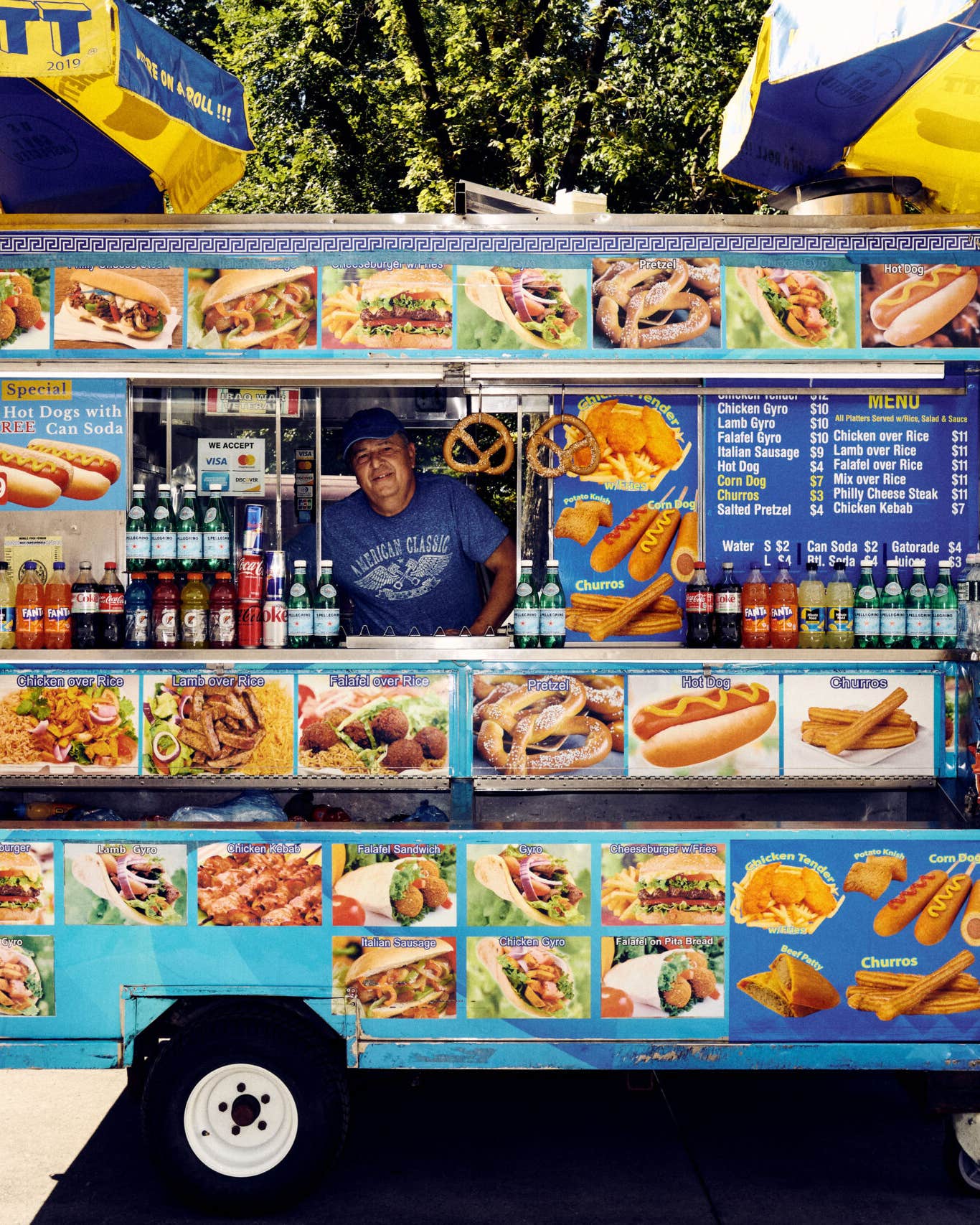
In Slovenia, Beekeeping Is Sacred—and Key for a Sustainable Food System
The unparalleled taste of this country’s honey is no accident.
Beekeeping heritage permeates Slovenian culture. In the small Central European country, approximately one in every 200 people keep and tend to bee colonies. Locals share a deep respect for the winged insects as indispensable pollinators in the food system, and honey appears often in Slovenian delicacies. Beekeeping tradition runs so deep that in the Slovenian language, saying one's "ax fell into the honey" is a proverb that refers to a sudden stroke of good luck.
"If you want to have a tomato, you must have a bumblebee," says Maruška Markovčič, who works in the Slovenian capital of Ljubljana's Department for Environmental Protection. As pollinators, bees enable crops to flourish, which makes them critical to agricultural production.

Slovenia has long held these insects in high regard. In the 18th century, Maria Theresa, then empress of the Habsburg Empire, launched the world's earliest beekeeping school in Vienna and named Anton Janša the instructor. "He was the first beekeeping teacher in the whole world, and he was a Slovenian," explains Blaž Ambrožič, who looks after more than 100 colonies and sells bee products on his family farm in Bled.
Today, bees are dying at alarming rates around the globe, due to pesticide use, disease, and climate change. In Slovenia, beekeeping tradition continues to thrive, bolstered by the country's respect for nature and commitment to conservation. In 2016, the European Commission awarded Ljubljana the title of European Green Capital; domestically, the Slovenia Tourist Board certifies destinations and businesses that exemplify sustainable practices by bestowing on them a Slovenia Green Label. This attitude of eco-consciousness extends directly to the care of bees. "If something bad happens in the environment, beekeepers immediately see the mistakes because bees will be dying," explains Peter Kozmus, who heads up the breeding program for the 8,000-member strong Slovenian Beekeepers' Association, and also led the initiative for the United Nations to declare May 20 World Bee Day. The pollinators’ sensitivity to environmental pollutants and disturbances, Kozmus explains, makes the insects important bio-indicators—and their caretakers essential stewards. "If bees are doing well in the city, this is very good proof that the city is healthy," he notes. In 2011, Slovenia banned the use of neonicotinoid pesticides after beekeepers suspected the chemicals were harming the bees. To further protect its native Carniolan honey bees—which Slovenians revere for their industrious and gentle nature—the country does not allow the import of other bee species.

In Slovenia, bees live in apiaries, enclosed bee homes composed of unique AŽ hives, named for the famous beekeeper Anton Žnideršič who invented them. Unlike their counterparts in the U.S., these hives tend to be smaller and open from the back rather than the top. This design not only makes it easier for beekeepers to inspect the colonies and detect issues more readily, but also enables the hives to stack, which can provide better protection from the elements. The shape and structure of the hives have a direct impact on the taste of the honey produced.
When bees return to their hives after pollinating plants, the nectar they bring back is very fluid. "They need to dry it with their wings," explains Nika Jere, who works with her beekeeper father in the family's meadery business Jere, located on the outskirts of Ljubljana. "If you have mass production and big hives, they cannot really dry it well, so the honey is usually pretty liquid." Slovenian honey, on the other hand, is thicker and more firm, “like the taste and the minerals are concentrated, because the water has been removed by the bees," says Nika. "That's why the taste is really intense."
Today, honey is still a regular fixture on Slovenian breakfast tables, not to mention a popular sweetener in desserts like potica, leavened pastries often rolled with walnut filling, and medenjaki, ginger-scented honey biscuits. At Jere, Nika's father Gregor maintains 300 beehives, producing raw honey and using it to make both regular and sparkling mead, an alcoholic beverage made by fermenting honey with water.

In 2007, the Slovenian Beekeepers' Association launched a breakfast campaign to reemphasize the nutritional and environmental value of native bee products. Beekeepers visited their nearby schools with honey in tow, so schoolchildren could enjoy it for breakfast. "While these children in kindergarten were eating honey, the beekeepers explained to them why bees are so important, why it's important for us to eat bee products," says Kozmus. Eventually, the initiative expanded to include other locally produced foods like bread and milk. The Traditional Slovenian Breakfast is now an annual event held on the third Friday of each November.
"When my children were small, getting a spoon of honey was like, for them, a lollipop," says Slovenian chef Ana Roš, who was named World's Best Female Chef in 2017 by The World’s 50 Best Restaurants. "For me, it's completely natural that at home I have a few different types of honey, but I don't have sugar." At Hiša Franko, her restaurant in Soča Valley, the menu springs entirely from local ingredients that reflect the diversity of the Slovenian landscape. The country's varied topography, she explains, produces many distinct flavors of honey. Chestnut honey is dark-hued and tends to lend bitter and smoky notes, while the light-colored linden honey has a woody, minty aroma. These variations wouldn't be possible without Slovenia's attention to preserving a pristine and biodiverse environment, Roš observes. "It's a direct result of the beauty and the quality of the nature," she says. "Whatever the bee is going to collect, this is how the honey is going to look. There is no cheating in that." At Hiša Franko, Roš often features bee products in creations like bee pollen ice cream with hydro honey, and fondue made from beeswax and local cheeses.
Named the European Region of Gastronomy 2021, Slovenia is increasingly becoming a global food destination for its culinary philosophy that supports local growers and makes the most of its diverse topography. Food-minded tourists seek out bee products not only at restaurants, but also at apiaries. In a growing apitourism trend, many beekeepers across the country have opened their doors to visitors, introducing them to the unparalleled taste of Slovenian honey and offering a glimpse into how the pollinators are looked after. Some apiaries invite visitors to don beekeeping gear and learn how to extract honey from a hive, while others provide apitherapy experiences. "They arrange the apiaries so that you can relax in there. You can listen to the bees, [or] you can lie on top of the beehives so that you can feel the buzzing of the bees," explains Markovčič.
Intertwining beekeeping with tourism is one way the country continues to champion bee conservation and educate people around the world about sustainable beekeeping practices. "If we are really disturbing one point of the chain, the whole [environmental] system can collapse," says Markovčič. "We are responsible for the environment of the bumblebees. They cannot plant wildflowers for themselves."
Every third spoonful of food consumed in the world depends directly on the pollinating efforts of bees, which means we have bees to thank for much of what we eat. Slovenia has been returning the favor all along.
"Here in Slovenia, bees are like pets," says Ambrožič. "Save the bees, and we will save ourselves."
Keep Reading
Continue to Next Story

